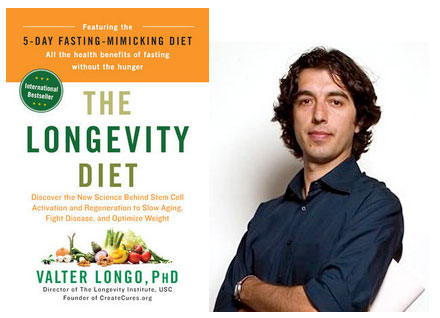Cancer
Pesticides: Our Children in Jeopardy
The recently released Pesticide Action Network North America report “A Generation in Jeopardy” is replete with information and over 200 citations.1 This is a synopsis of some of the points made in this report…
Interview with Author Laurada Byers on The Value of Integrative Medicine for PTSD, Pain, Cancer and Parkinson’s
When I first read Wild Wisdom, A Warthog’s Tale, I mistakenly took it for a children’s book. Look beyond the enchanting art work and you will find it is nothing of the sort. It’s a very adult book that uncovers the private thoughts and public decisions that Laurada Byers madeRead
Adding ginger to spicy foods may lower cancer risk
by Peyton Pritikin A compound in ginger, called 6-gingerol, could counteract the risk of stomach cancer in Asian cultures who consume high amounts of spicy foods. Capsaicin has many health benefits, but research shows that the compound that gives peppers their kick can also lead to a higher risk ofRead
Integrative Psychiatry Effective but Overlooked for Cancer Patients
Nearly three-quarters of cancer patients who have major depression are not currently receiving treatment for depression, and that a new integrated treatment programme is strikingly more effective at reducing depression and improving quality of life than current care, according to three papers published in The Lancet Psychiatry, The Lancet, and The Lancet Oncology. Lead author Professor Michael Sharpe from the University of Oxford in the UK, says “The huge benefit that DCPC delivers for patients with cancer and depression shows what we can achieve for patients if we take as much care with the treatment of their depression as we do with the treatment of their cancer.” By M Sharpe, et al., published in the Lancet and Lancet Oncology, Aug. 2014.
Inactivity Linked to Colon, Lung, Endometrial Cancer
It is widely accepted that physical inactivity leads to weight gain, cardiovascular disease and diabetes. New research links a sedentary lifestyle to certain cancers, specifically colon, lung and endometrial cancer, according to a study published June 16 in the JNCI: Journal of the National Cancer Institute. The research is significance as is shows sedentary behavior is emerging as an independent risk factor for cancer, chronic disease and mortality. However, in a clinical setting guidelines to improve activity levels for adult patients are poorly defined and difficult to implement.
Apathy Aside, Six Factors to Reducing Global Health Risks
The biggest threat to global health and wellness can be narrowed down to six, preventable non-communicable diseases: respiratory illness from tobacco use, harmful alcohol use, salt intake, high blood pressure and blood sugar, and obesity. According to a May 2014 Lancet study, if nations could reduce target levels for these lifestyle related diseases in the next 25 years, 37 million early deaths would be prevented. But by not reaching these targets, an additional 10.5 million deaths would occur as compared to the 28.3 million who died in 2010. And while experts say this could be possible, critics say apathy from leadership is the biggest obstacle to achieving the desired target.
Vitamin D May Improve Breast Cancer Survival
Valter Longo, PhD: Differential Stress – Effects of Fasting on Cancer
Interview by Craig Gustafson / Sponsored by the Oncology Association of Naturopathic Physicians 2014 Conference The following is a two-part excerpt of an interview with Valter Longo, PhD. for Integrative Medicine, A Clinician’s Journal, Dec. 2013. Part one of the interview is below, regarding cancer research and fasting. Part twoRead
Healing Cancer in a Holistic Environment, Interview with Karin Whitney Cooke
Karin Whitney Cooke, RN, president and cofounder of Kokolulu Farm and Cancer Retreats, Inc in Hawaii, is a cancer survivor and a registered nurse with 40 years of experience and research in allopathic as well as complementary and alternative medicines…













